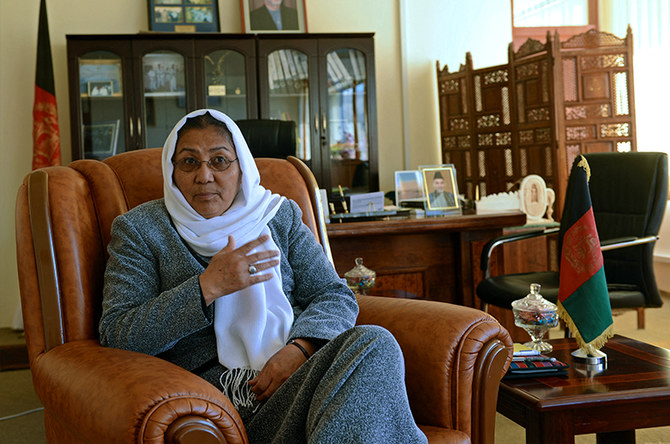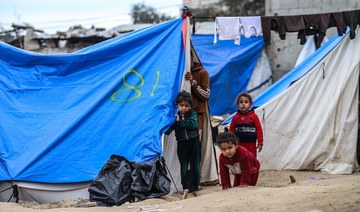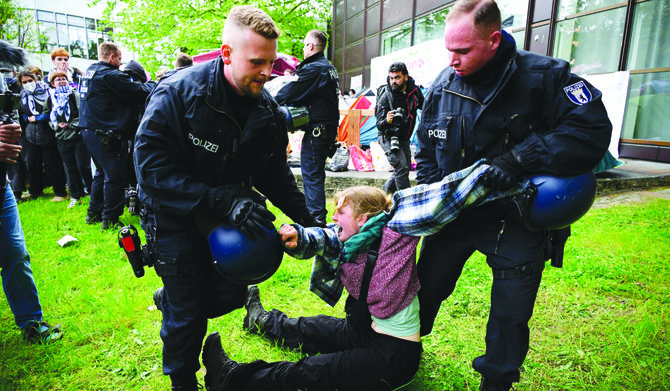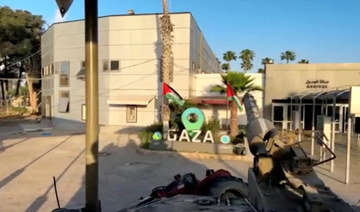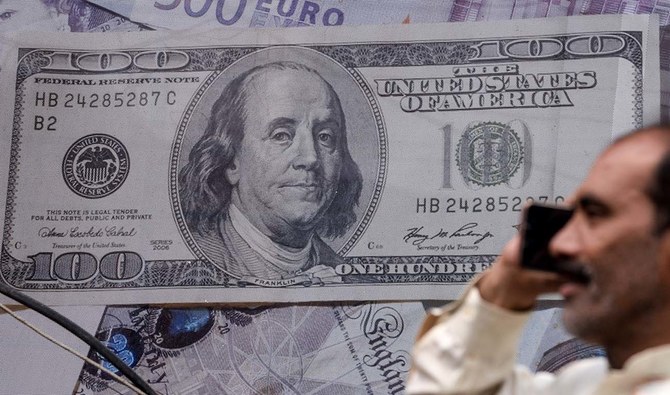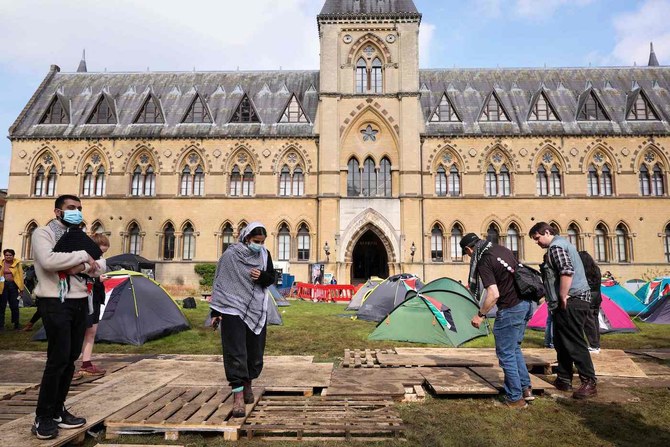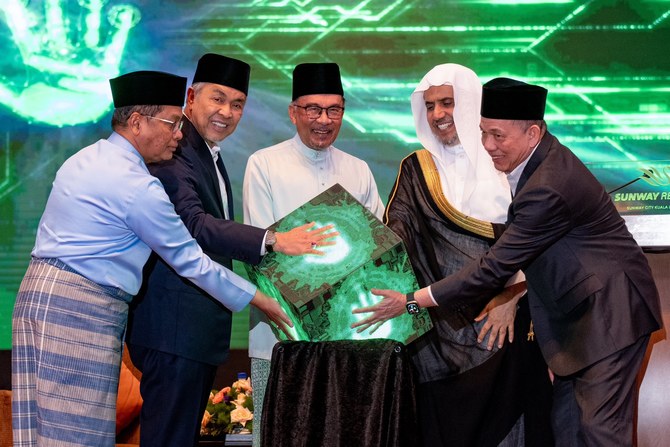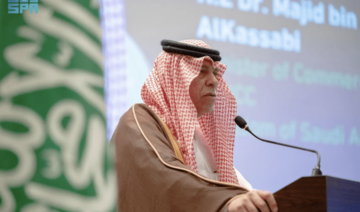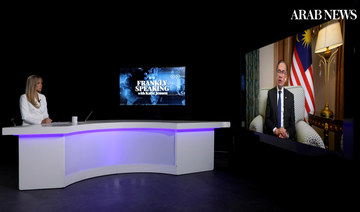KABUL: Habiba Sarabi said was “deeply surprised” to learn that she was the only female negotiator on a 12-member team of Afghan government and political leaders at a recent two-day meeting in Russia.
The talks, an attempt to avert the collapse of intra-Afghan talks that started in Doha last year, began on Thursday to discuss Afghanistan’s peace process and its future, including women’s rights.
Besides government and Taliban emissaries, the conference was also attended by representatives from the Afghanistan High Council for National Reconciliation (HCNR), factional and influential leaders, and the US, China and Pakistan — none of whom were women.
Sarabi, a prominent politician and rights advocate, was broadly critical that so few women were being con suited in the peace process.
“The war has been fought by men generally, and they think they can also make peace, which is a mistake,” Sarabi told Arab News, recalling a part of her comments during the meeting.
“Women have given great sacrifices, and make up 50 percent of society; without their participation, there will be no genuine peace,” she said, adding that she had complained directly to her Russian hosts for not inviting more women.
“I said ‘you are inviting only those who have military, political might or lead parties and have a good economy, but unfortunately ignore the women’,” Sarabi claimed, adding that her hosts had replied sarcastically: “You talk so much as the sole woman in the room; imagine what would have happened should there have been more women.”
The Moscow talks mark the start of several meetings on the Afghan peace process, with another round scheduled to take place in Turkey next month.
They began ahead of a May 1 deadline for the complete withdrawal of US-led foreign troops in Afghanistan, and amid efforts to end a stalemate in the Doha talks between Taliban and Kabul government representatives in September, which have been riddled with disputes.
With just six weeks left before the deadline, several sections of Afghan society said it was “unacceptable” for only one woman to attend the Moscow meeting.
“Only one woman was allowed to be in the room where a nation’s future was being decided. No man left the meeting as a sign of protest or criticized (it) in any other way. No solidarity with women. Misogyny in its peak,” Freshta Karim, a woman rights campaigner, tweeted on Friday.
Since the Taliban’s ousting in 2001, Afghan women have regained the right to education, to vote and to work outside their homes.
Still, it is not an easy place to be a woman, with forced marriages, domestic violence and maternal mortality prevalent across the country, particularly in rural areas.
However, access to public life has improved, especially in the capital Kabul, where thousands of women work, and more than a quarter of Parliament is female.
Reacting to the lack of Afghan female representation at the talks, Ali Mohammad Latifi, a renowned journalist, wrote that Kabul “keeps talking about gains,” flagging a “red line” where women’s rights are concerned, but “rarely puts words into meaningful action.”
Naheed Ahmad Farid, a lawmaker from western Herat, agreed, tweeting on Friday that a “male-dominated Afghan peace process is unacceptable.”
Besides Sarabi, three other female negotiators, including women’s rights activist Fawzia Koofi, have participated in the peace process since September.
And while Sarabi said she was disappointed with Moscow, she added that Turkey, which will write the next chapter of the negotiations, has pledged to ensure “a greater share for Afghan women’s participation.”
Moscow sent individual invites to participants, based on recommendations from the Afghan government and the HCNR led by Dr. Abdullah Abdullah, who shares power with Afghan President Ashraf Ghani.
Ghani picked Sarabi from among four participants to represent his government, but no other factional leader, or Abdullah, chose a woman representative.
The presence of several factional leaders, such as Abdul Rashid Dostum and Gulbuddin Hekmatyar, who have been accused of serious human rights abuses, has also raised concerns.
“I was surprised to see that unfortunately, these leaders only think about themselves and their participation, and it is not only the government but our institutions such as the High Peace Council,” Koofi, who represented Kabul during the intra-Afghan talks in Qatar, told Arab News.
“If you look at our allies, in Moscow, actually there were no woman from those countries that are our friends and our supporters of peace … it is an international phenomenon to undermine, ignore and deny women participation in such a process like peace and security,” she added.
Koofi, who survived two assassination attempts, said it was essential to keep fighting for a more equal, just and stable future for Afghanistan after decades of war, adding that the presence of female negotiators “makes a big difference” based on “my six months of engagement” in the Qatar talks.
“I think regional countries need to engage and involve more women to set an example for the Taliban that it is ok to include women,” she said.
The onus, Koofi added, was also on world powers who have “long counted on factional and traditional leaders” to finalise the participant list, as this will further “dilute the role of the few women involved” in the peace process.
“Unfortunately, the approach has always been tokenistic,” she told Arab News.
Others said that the voices of female war victims had never been represented in any meetings on Afghan peace.
“During the past two decades (since the US invasion), the issue of women’s rights has been raised merely as a slogan,” Aryan Youn, a lawmaker from eastern Nangarhar, told Arab News.
“Donors and sponsors of conferences should choose women who have a good understanding of women’s pains and sufferings because they have lost sons, husbands and family members in the war ... not the ones who talk of their freedom and are invited again and again to such meetings,” Youn added.
“You cannot compare the women rights situation in Afghanistan to that of America and Europe,” she added.



